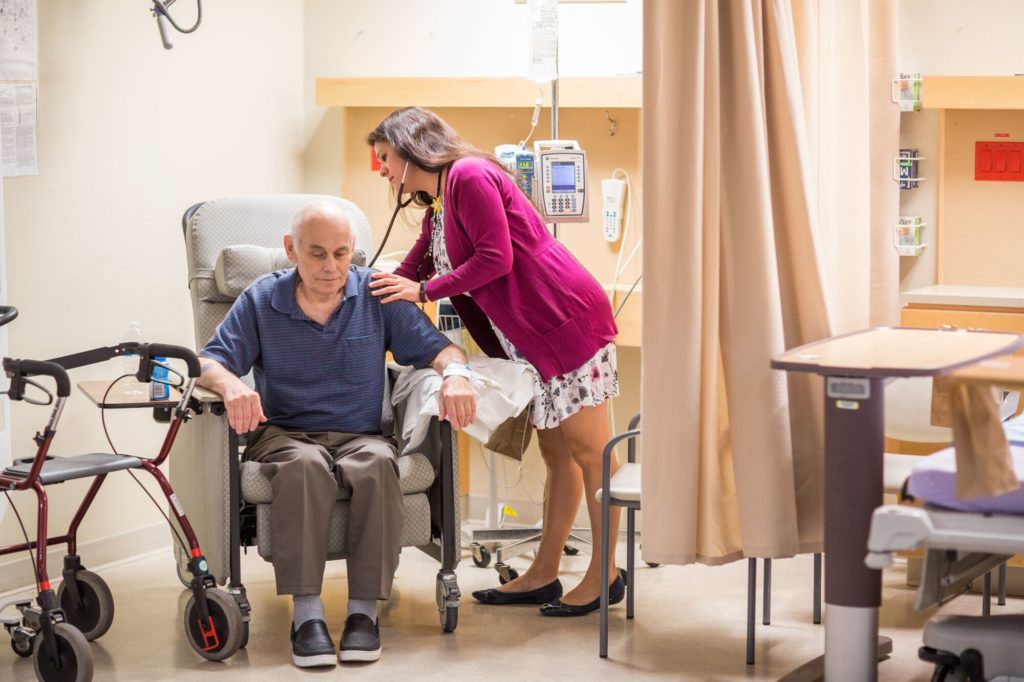
RESSCU: The right care in the right place at the right time
A life raft is most effective when it’s at your fingertips when trouble strikes—not when you have to swim through cold and choppy water to reach it. That’s why we’re making it easier for people to access the urgent care they need, when they need it.
We’re reorganizing treatment pathways so they follow a natural and connected route that’s easy for people to understand, and integrating services to make care more personal and less transactional.
RESSCU: rapid access to the right care
As part of this shift, we’ve created a new program called RESSCU—Rapid Evaluation and Symptom Support Cancer Unit. This nurse practitioner-led service at Hamilton Health Sciences’ Juravinski Hospital and Cancer Centre gives people receiving cancer treatment direct access to a highly-trained team to help them manage their symptoms, and the side effects of their treatment.
“there’s a sense of familiarity and more personalized care”
“It’s one stop with staff who have the knowledge and skills to care for these patients and their unique needs,” says Angela Djuric Paulin, who led the team that implemented the project. “It’s well integrated with our cancer clinics, so there’s a sense of familiarity and more personalized care.”
A familiar face makes a difference
For Russell Crooks, who recently finished chemotherapy and radiation, this lifeline makes the waves of nausea and pain a little more bearable. He doesn’t have to retell his story every time he visits. They already know.
“The nurses are super in the RESSCU centre,” he says.
Tailored care allows more people to get the treatment they need in the unit, rather than being admitted to the hospital. It also gives them an alternative to visiting the emergency department. The program is closely linked to Oncology Day Services where patients can receive extended care outside RESSCU’s operating hours. These factors can lead to better health and reduce hospital gridlock.
The majority of people seen during RESSCU’s pilot phase were treated by the team then discharged home. They receive a follow-up phone call within 48 hours to check on their symptoms. Many patients, like Russell, say RESSCU has improved their hospital experience and given them more confidence in the healthcare system.
Plans are in place to improve and expand RESSCU so more patients can benefit from this innovative model.
